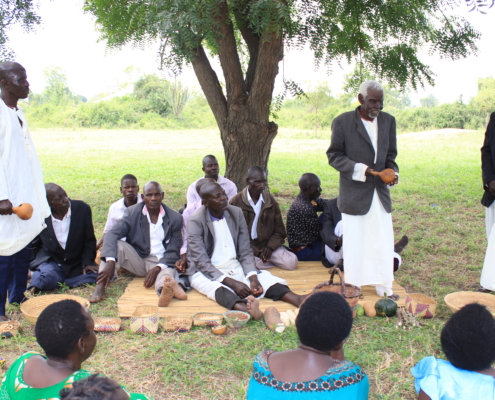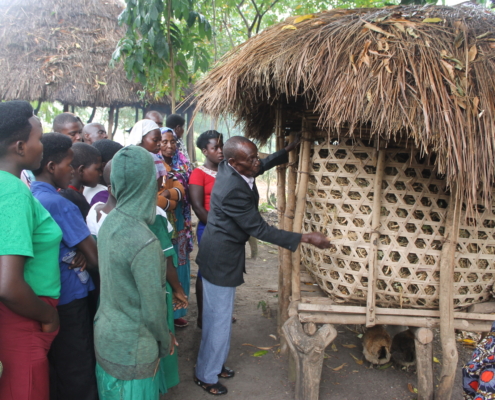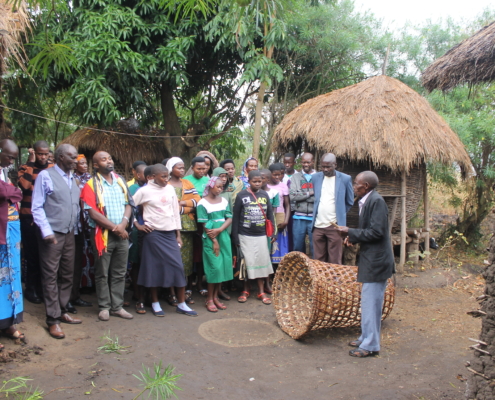Inter-connectedness of people’s traditional cultures, food and biodiversity
Most indigenous peoples and communities, especially in Africa, know and look at the universe as one community. Discussions with elders in these communities reveal deep relationships and the elders’ interconnectedness with food, soil, plants, animals and fellow humans. All these are embedded in their traditions and beliefs. This relationship is manifested in different forms of human bio-cultural activities, as Dennis Tabaro, the Executive Director of AFRICE in Uganda, explains. This is the second part of an article published in July – read the first instalment here
In the Baganda of Uganda communities, like others in traditional African settings, women are the custodians of food. They are experts on seed selection, seed breeding and storage. They can just look at a grass, the soil or an insect and tell you what type of crop is suitable to grow on that piece of land. Women know the crop succession plan. They know that in this type of soil, a certain type of a crop will grow, and what it should be followed by in subsequent seasons. The same wisdom will tell you that the land needs to dream (to be left fallow) before any other crop is grown.
As is already well known, farming is not done in isolation from other social, cultural and spiritual practices in the community. Human connections or living in harmony with Nature is paramount. The growing of crops, field husbandry, harvesting, eating and storage is a chronology of socio-cultural and spiritual attachment. At every single stage of the crop, the community observes certain practices, ceremonies and rituals. The failure to observe such practices is believed to lead to crops not performing as expected. Reciprocity is an important practice in the community. It is a give and take scenario. You give to the land before you take away from the land. Likewise, you give to the divine Creator of all things before you expect better yields or anticipate better future harvests. This explains the importance of giving harvests to church, mosques or other sacred places in Nature, depending on one’s spirituality.
Harmonious living with nature
Our economies and policies safeguard the larger animals, such as elephants, lions and chimpanzees, because they attract tourists who bring foreign money. You will hear about the endangered animal or bird species. But we hear far less about the endangered insects or the microorganisms in the soil highly affected by chemicals, sprays/pesticides and other harmful practices to the environment.
Traditional communities guard the animal and insect habitants because they know the role of each insect, bird or small animal in the food production cycle. The soils we have are made of millions of microorganisms, which our ancestors have protected, fed and preserved while growing crops.
We need to revive this indigenous knowledge. The time is now. The knowledgeable elders are dying with all this knowledge, which is not known or ignored in favour of the foreign education system. In our communities, we need to have and observe, for example, national totems’ days and small insect days, to have weeks where people talk, praise and sing about the importance of these members of the Earth community, if our biodiversity is to be protected.
Parents, educate your children and grandchildren about the meaning of totems and the significance of food and seed ceremonies. The elders who have this knowledge should be encouraged to share it with the young ones. Lastly, let us decolonize our food systems and rebuild more resilient communities in harmony with Nature.
The African Institute for Culture and Ecology (AFRICE) is a partner of ABN from Uganda. Denis Tabaro, the author of this article is an Earth Jurisprudence Practitioner, an agroecologist and community educator.
Email: director@africeug.org





